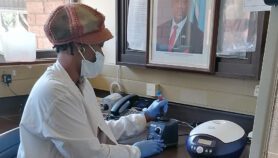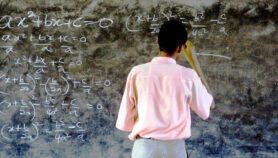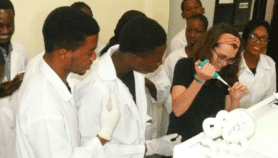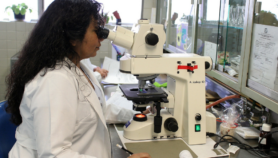By: Talent Ng’andwe
Send to a friend
The details you provide on this page will not be used to send unsolicited email, and will not be sold to a 3rd party. See privacy policy.
[LUSAKA] Rwanda has identified a major role for science and technology in efforts to rebuild the nation, which eleven years ago was torn apart by genocide when more than 750,000 people were murdered.
According to a draft policy on science, technology and innovation policy, Rwanda will integrate science and technology into all sectors of the economy.
The national science, technology, scientific research and innovation policy outlines plans to apply science to Rwanda’s problems in health, agriculture and the environment.
In practical terms this means developing biotechnology to increase crop yields and improve animal husbandry, focusing health research on infectious diseases and vaccines, and using science-based approaches to improve irrigation, provide safe drinking water and develop renewable supplies of energy.
According to the plan, the government will promote partnerships between training and research institutions and support private sector involvement in scientific research and innovation.
It will set up district-level ‘innovation centres’ and national technology parks to encourage research and development, particularly by small businesses. These centres will focus on the needs of rural communities, and pay special attention to enabling the full participation of women.
Achieving the policy’s objectives will require a considerable increase in human resources.
Presenting the policy on 5 May, Romain Murenzi, minister of education, science, technology and scientific research, spoke of Rwanda’s lack of trained scientists and educators.
“We have no scientists with necessary skills to undertake quality research and there are no skilled and experienced trainers, teachers and lecturers to provide quality science and technology education,” said Murenzi.
The policy focuses on motivating young people to study science, ensuring there are well-qualified science and technology teachers at all levels of education, and building a core of competent science and technology personnel in each ministry and throughout each economic sector by 2020.
The draft science policy is Rwanda’s first. A committee of scientists and representatives of the private sector appointed at last month’s conference will revise the draft, before it is sent to the Rwandan cabinet for approval.
The policy was developed in line with Rwanda’s ‘Vision 2020’, a national development plan that aims to boost Rwanda’s economy and the quality of life of its citizens by 2020.
Speaking at the opening of the conference, Rwanda’s president Paul Kagame said: “The advancement of science and technology will have a major impact on the improvement of the wealth and livelihoods of our people.”
The president welcomed the emphasis on the integration of science and technology at all levels of education from primary school to higher education, adding that the application of science and technology was one of the most effective weapons towards the elimination of poverty in Rwanda.
Read more about research and development in SciDev.Net’s research and development dossier.













